11 High-Yield REITs to Buy for Big Income
The old '4% rule' has recently crept up to be the '5% rule.' This collection of high-yield REITs can still help you reach that threshold in pure income.


Profit and prosper with the best of Kiplinger's advice on investing, taxes, retirement, personal finance and much more. Delivered daily. Enter your email in the box and click Sign Me Up.
You are now subscribed
Your newsletter sign-up was successful
Want to add more newsletters?

Delivered daily
Kiplinger Today
Profit and prosper with the best of Kiplinger's advice on investing, taxes, retirement, personal finance and much more delivered daily. Smart money moves start here.

Sent five days a week
Kiplinger A Step Ahead
Get practical help to make better financial decisions in your everyday life, from spending to savings on top deals.

Delivered daily
Kiplinger Closing Bell
Get today's biggest financial and investing headlines delivered to your inbox every day the U.S. stock market is open.

Sent twice a week
Kiplinger Adviser Intel
Financial pros across the country share best practices and fresh tactics to preserve and grow your wealth.

Delivered weekly
Kiplinger Tax Tips
Trim your federal and state tax bills with practical tax-planning and tax-cutting strategies.

Sent twice a week
Kiplinger Retirement Tips
Your twice-a-week guide to planning and enjoying a financially secure and richly rewarding retirement

Sent bimonthly.
Kiplinger Adviser Angle
Insights for advisers, wealth managers and other financial professionals.

Sent twice a week
Kiplinger Investing Weekly
Your twice-a-week roundup of promising stocks, funds, companies and industries you should consider, ones you should avoid, and why.

Sent weekly for six weeks
Kiplinger Invest for Retirement
Your step-by-step six-part series on how to invest for retirement, from devising a successful strategy to exactly which investments to choose.
Investors looking to bolster their income portfolios have long looked to dividend-friendly real estate investment trusts (REITs) to get the job done. But recently, the appeal of high-yield REITs has intensified, thanks to changes to conventional investing wisdom.
For more than a quarter century, the "4% rule" governed many investors' withdrawals from retirement savings. According to this rule, investors would have sufficient funds in their portfolio to last a lifetime if no more than 4% was withdrawn from the portfolio in year one of retirement, with the withdrawal rate in subsequent years increasing only as much as needed to keep pace with inflation. Dividend investors, then, could comply with the 4% rule and never need to touch their principal by building a portfolio that yields 4%.
Times change, however. Financial advisor Bill Bengen, who created the 4% rule, recently updated his advice in the October issue of Financial Advisor magazine. Bengen now thinks 5%, not 4%, is the right amount for retirees to withdraw annually in the current low inflation environment.
For dividend investors who want to preserve principle, that means designing a portfolio that yields 5%.
The problem? You might have noticed that stocks paying 5% in dividends are hard to come by, especially in today's richly valued stock market. But a good place to start is with REITs, whose above-average yields are largely a product of the REIT structure requiring the majority of taxable earnings to be paid as dividends.
Here are 11 high-yield REITs with a collective average yield of more than 5%. Some have been more battered than others by the pandemic, but all have solid balance sheets that are keeping them afloat as they weather the COVID-19 storm.
Data is as of Nov. 19. Dividend yields are calculated by annualizing the most recent payout and dividing by the share price.

W.P. Carey
- Market value: $12.3 billion
- Dividend yield: 6.0%
W.P. Carey (WPC, $70.03) is a leading net-lease REIT that invests in high-quality, single-tenant properties. Net-lease REITs reduce risk by passing property-specific expenses (usually maintenance, insurance and taxes) directly along to the tenant and embedding contractual rent increases in leases. That makes the REIT's income more predictable and reliable.
W.P. Carey owns 1,216 properties across the U.S. and western Europe. Its properties are leased to 352 different tenants. The REIT boasts a well-diversified tenant base, with industrial, warehouse and office properties representing nearly 70% of the portfolio and only 17% retail exposure, which has helped to reduce the effects of the pandemic on 2020 occupancies and rents.
During the June quarter, the portfolio showed a 98.9% occupancy rate and average remaining lease term of 10.7 years.
A portfolio diversified by property type helped to keep rent collections strong during the third quarter, with 100% collection for self-storage, office and retail, 99% for industrial and 94% for warehouse. Adjusted funds from operations (FFO, an important profitability metric for REITs) declined 11.5% on a per-share basis but exceeded analyst estimates.
With over $1.9 billion of liquidity, WP Carey will be able to step up investments in new properties, which should fuel 2021 AFFO growth.
W.P. Carey also continues to be one of the most attractive high-yield REITs because of its slow but frequent and persistent dividend growth. The company hiked its quarterly payout for a 78th consecutive quarter in September, from $1.042 per share in June to $1.0440. AFFO payout ratio is also low for a REIT, at 85%, giving W.P. Carey additional flexibility to continue hiking dividends.
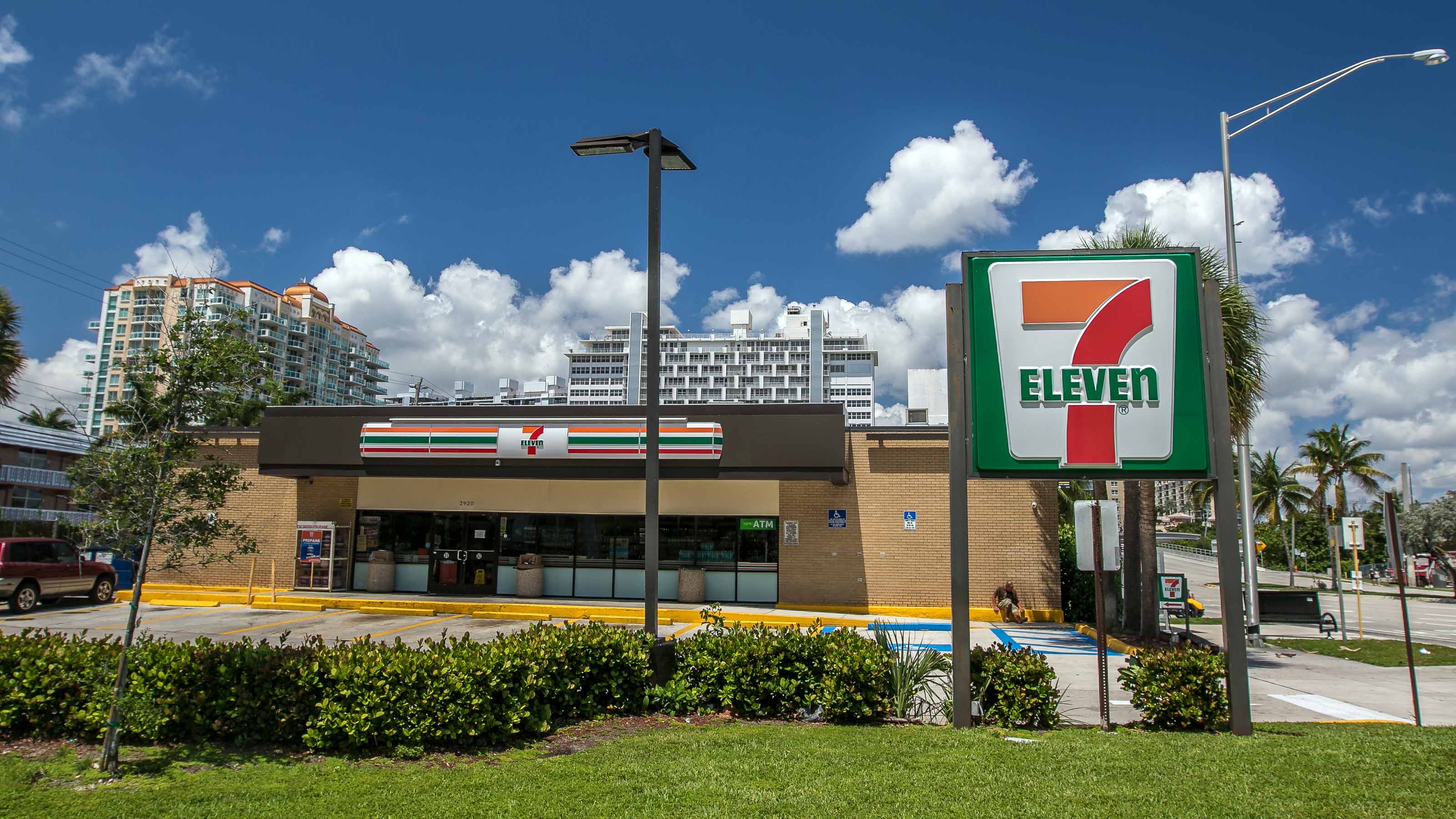
National Retail Properties
- Market value: $6.9 billion
- Dividend yield: 5.2%
Another REIT investing in single-tenant net-lease properties is National Retail Properties (NNN, $40.13). This REIT has tenants across 37 different industries, though its largest tenants are convenience stores, quick-service restaurants and automotive service providers. Its portfolio consists of 3,114 properties leased to 380 tenants and spread across 48 states.
The quality and diversity of its tenants has enabled this REIT to maintain occupancy rates well above the REIT average for 17 years and deliver 5.8% annual core FFO per share growth since 2014. As noteworthy, National Retail has generated 31 consecutive years of dividend growth while actually reducing its payout ratio over time. Payout during the third quarter was a safe 84% of FFO.
The REIT's core FFO per share fell by just 4% during the first nine months of 2020, and the company maintained a 98.4% occupancy rate. A solid balance sheet showing $294.9 million of cash, the full amount available on a $900 million line of credit and no debt maturities before 2023 gives NNN great financial flexibility.
National Retail Properties actively manages its portfolio, too, with 21 properties acquired for $74.1 million so far this year and 25 sold that generated a $13.6 million gain on sales.
NNN was highlighted at the beginning of 2020 as one of the best retirement stocks to buy, and it continues to prove its worth as a long-term investment. This high-yield REIT has generated 11.1% average annual total returns over the past quarter-century, fueled in part by a dividend that has grown for 31 consecutive years.

Medical Properties Trust
- Market value: $10.3 billion
- Dividend yield: 5.6%
Medical Properties Trust (MPW, $19.23) is a healthcare REIT that invests in hospitals; it owns 385 hospital properties representing 42,000 licensed beds and spread across nine countries. Medical Properties Trust leases facilities to 46 hospital systems and ranks as the second largest owner of hospital beds in the U.S. Hospital systems enter into sale-leaseback arrangements with the REIT to monetize real estate assets and reduce operating costs.
MPW has delivered 30% annual asset growth and 8% annual FFO per share gains over the past decade. That has helped a short string of seven consecutive years of dividend increases, with growth averaging a modest 4% annually.
During the first nine months of 2020, Medical Properties Trust grew FFO per share by 15% and closed $3.1 billion of acquisitions, with more deals scheduled to close in late 2020 as the REIT capitalizes on acquisition opportunities created by the pandemic. The effect of COVID-19 on its operations has been minimal. Medical Properties Trust expects to collect 98% of cash rents and interest payments due to it in calendar 2020.
"The REIT has already purchased $3 billion YTD and more is likely to come-making 2020 the second largest year for acquisitions in the company's history," write Stifel analysts, who rate the stock at Buy. "This leads us to project strong earning's growth in 2020 and 2021 of 20% and 6%, respectively."
They add that valuations on MPW remain attractive.
Mizuho analyst Omotayo Okusanya also upgraded the stock months ago, citing solid rent collections and an improved acquisition outlook as reasons for earnings upside.
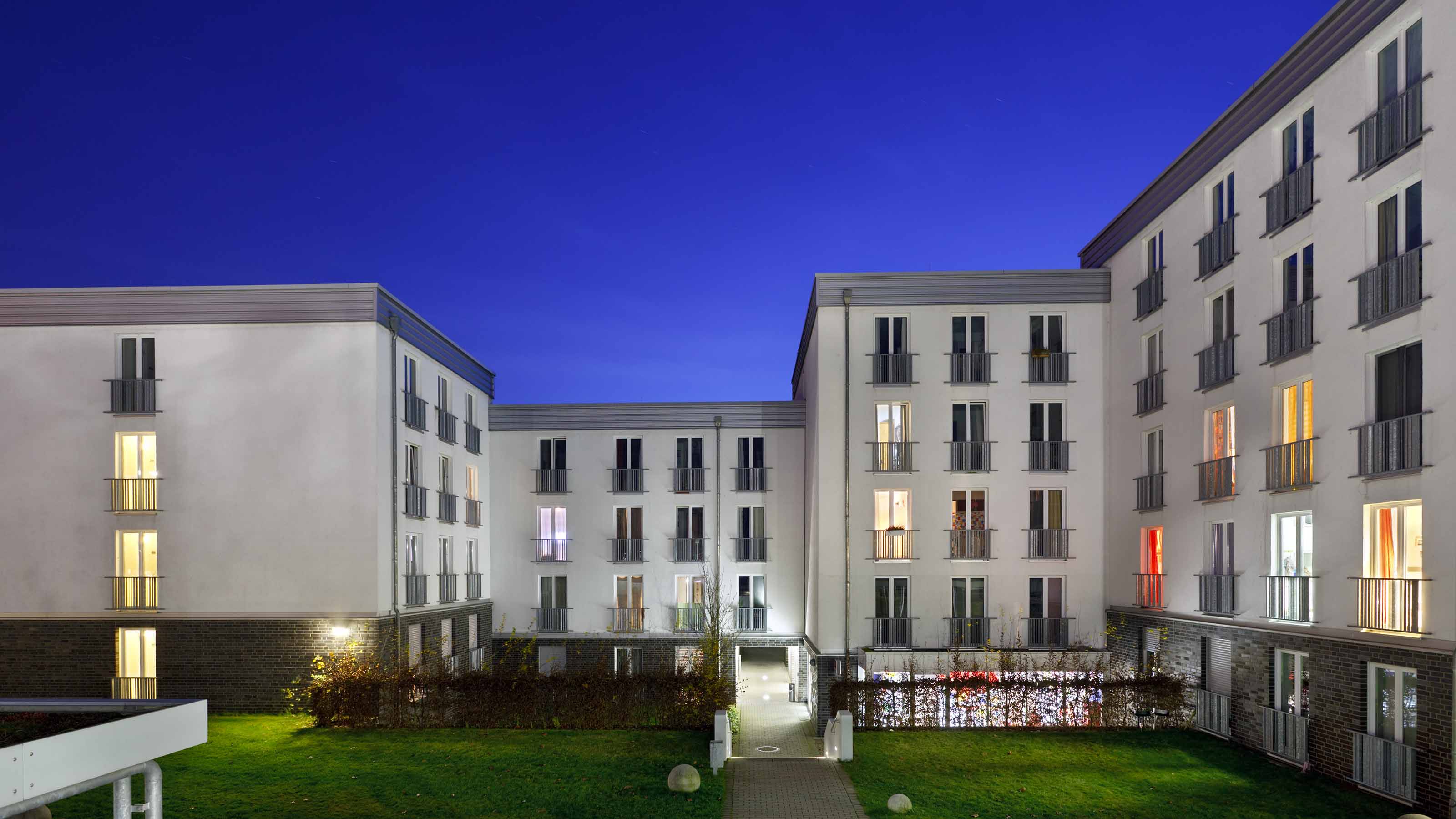
American Campus Communities
- Market value: $5.6 billion
- Dividend yield: 4.7%
American Campus Communities (ACC, $40.38) is the country's largest developer, manager and owner of student housing. The REIT owns 160 student housing properties and manages a total portfolio of 139,900 beds across 204 properties.
The pandemic effect is evident, given FFO that was off 26.6% through the first nine months of the year. But the student housing market is bouncing back faster than anticipated. The REIT's portfolio was 90.3% leased in September and ACC was able to obtain a 1% rate increase. According to The Chronicle of Higher Education, 63 of the 68 universities where the company supplies housing planned to return to on-site classes or a hybrid in-person model during the fall semester, versus only five that remained primarily on-line.
The REIT has development projects underway at University of Southern California, San Francisco State University and the Disney College Program (part of Walt Disney World Resort) that should contribute to a post-COVID rebound. These projects add housing for the 2021 academic year in markets where universities are reducing on-campus housing by over 55,000 beds.
American Campus Communities remains strong financially with more than $44 million of cash, $813 million available on its credit line and no remaining debt maturities in 2020.
While payout ratios are currently higher than the company's historical targets because of COVID's effects on FFO, the company kept its 47-cent-per-share dividend intact in November. Bill Bayless, American Campus Communities CEO, stressed that "our strong liquidity position and the long-term stability of our operating performance has provided the Board of Directors the confidence that the company can safely absorb the short-term disruption to cash flows and still meet all of its capital needs while maintaining our dividend at current levels."
Commenting on student housing REITs and ACC, Piper Sandler analyst Alexander Goldfarb (Hold) said in October that "while live-on requirements were waived for 2020/2021, there is a good chance that reverts next year." That bodes well for this high-yield REIT in 2021.
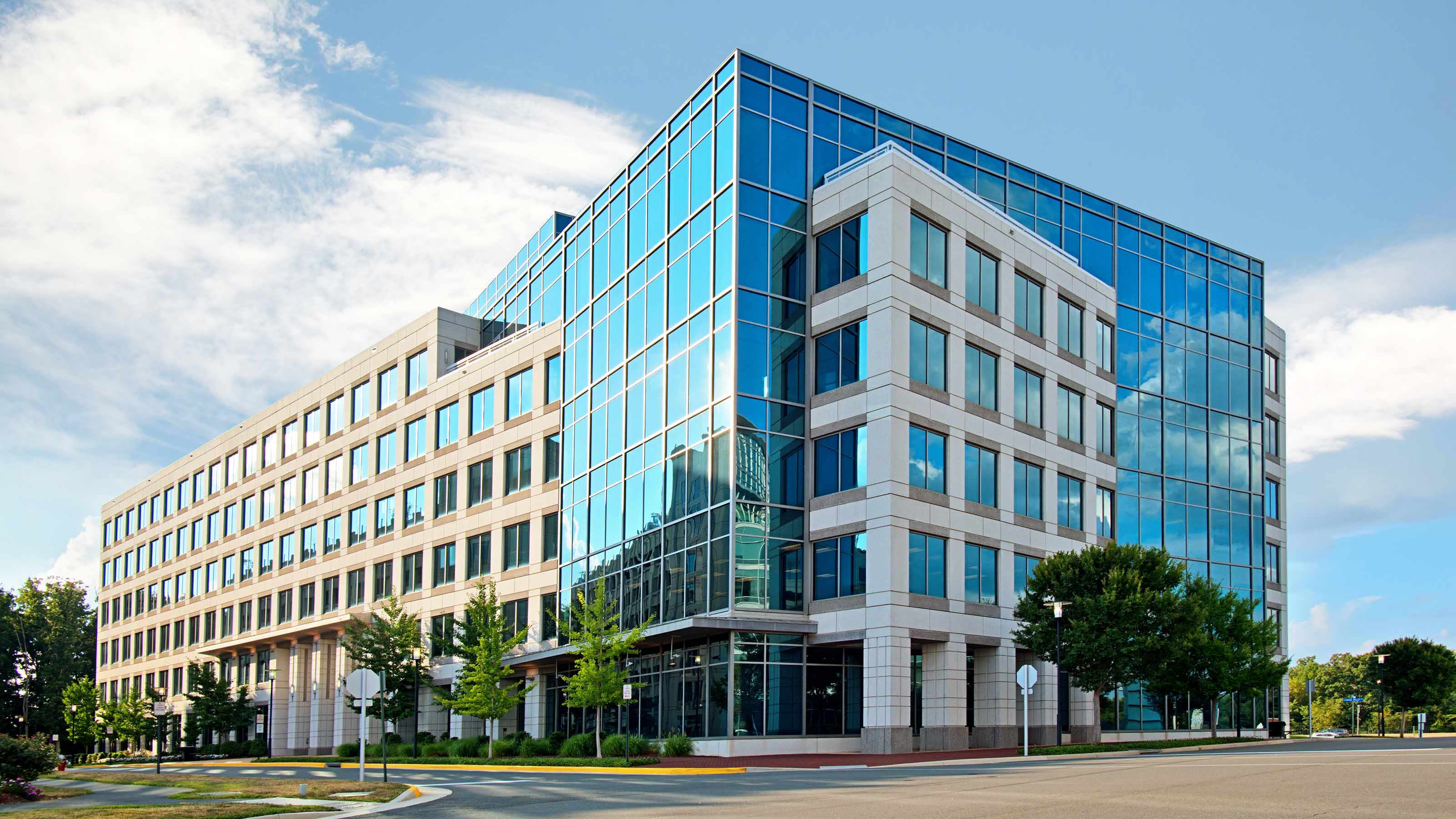
Healthpeak Properties
- Market value: $16.5 billion
- Dividend yield: 4.8%
Healthcare REIT Healthpeak Properties (PEAK, $30.60) owns 633 properties, balanced across the life sciences, senior housing and medical office sectors. The life sciences portfolio consists of lab and office space focusing on three leading medical research markets (San Francisco, San Diego and Boston), with properties typically located in business park or campus settings. Medical office properties are located adjacent to hospitals and leased to hospitals or physician groups.
Income from senior housing properties declined in the first nine months of 2020 due to pandemic effects, but was offset by strength in the life sciences and medical office portfolios, which grew income 5.7% and 2.3%, respectively. Adjusted FFO has declined, but by a modest 7% or so.
The company has better-than-average liquidity to ride out COVID-related disruptions. Total liquidity is $2.6 billion, including $2.4 billion available on its $2.5 billion revolving credit facility, as well as $150 million in cash and cash equivalents and no material debt maturities before 2023.
Longer-term, this high-yield REIT should benefit from demographic trends that include aging baby boomers demanding new treatments and medical devices, increased outpatient services and more seniors requiring daily living assistance. In addition, the company boasts a $1.2 billion development pipeline that is already 63% pre-leased.
Healthpeak was previously known as Healthcare REIT and cut its dividend in 2017 after spinning off its nursing home business, marking the REIT's only dividend cut in 25 years. Since then, the company has paid a steady $1.48 annual dividend. The payout ratio has risen to about 90% in 2020 because of COVID, but it has averaged a safe sub-80% over the past four years.

Store Capital
- Market value: $8.4 billion
- Dividend yield: 4.5%
Store Capital (STOR, $32.00) is a net-lease REIT that invests in single tenant properties primarily across the quick service restaurant, health club, childhood learning and auto repair sectors. Its portfolio, which was 99.6% occupied as of 2020's third quarter consists of 2,587 properties leased to 511 tenants and spread across 49 states.
And it's a rare REIT in that it has Warren Buffett's seal of approval.
Portfolio growth helped fuel 6% revenue gains and 3% FFO per share growth during the first nine months of 2020. Store Capital collected 73% of contract rents and interest during the June quarter, rising to 90% by October.
The portfolio is valued at $9.3 billion, approximately 11% above the REIT's market capitalization. Remaining lease terms averaging 14 years with fewer than 3% of leases scheduled to expire within the next five years gives the portfolio great stability.
Store Capital has been a strong dividend grower among high-yield REITs, improving its payout by 40% since its 2015 initial public offering (IPO). The company recently reaffirmed its commitment to maintain the dividend at the current $1.40 annual rate. This is a dividend you can trust, too, given an extremely conservative payout ratio averaging 70% of FFO over the past five years.

National Health Investors
- Market value: $2.9 billion
- Dividend yield: 6.7%
National Health Investors (NHI, $65.54) invests in retirement communities, skilled nursing facilities, medical office buildings and specialty hospitals. Its portfolio encompasses 243 properties leased to 37 operators and spread across 34 states.
NHI has outperformed healthcare REIT peers over the past six years, generating roughly 5% annual FFO per share growth and 6% dividend growth while maintaining modest payout at less than 80% of earnings.
The company's adjusted FFO per share grew nearly 7% in the first six months of 2020 as a result of improving occupancy trends and federal programs that are helping its operator tenants.
The COVID impact on the REIT has been minimal, as evidenced by 100% of contractual rents collected for the second quarter, 96.2% collected during the third and 92.7% in Q4 (to date). "The remaining balance relates primarily to one additional tenant concession as well as lower forecasted revenue from transitioned properties prior to the start of the pandemic," the company states.
One reason this REIT is great for retirees is its fortress-like balance sheet. NHI has very low leverage (4.8 times ratio of debt-to-adjusted EBITDA), $785 million of liquidity and no significant debt maturities before 2022.
NHI also is tops among these 11 high-yield REITs at a nearly 7% yield. The REIT improved its payout earlier this year with a 5% hike to $1.1025 per share.

Healthcare Trust of America
- Market value: $6.0 billion
- Dividend yield: 4.7%
Another solid healthcare REIT is Healthcare Trust of America (HTA, $27.25), which is the country's largest owner/operator of medical office buildings. The REIT owns 467 medical office buildings comprising 25.1 million square feet of leasing space and valued at approximately $7.4 billion. Its footprint extends across 33 states, but most investments target 20 to 25 gateway markets where leading universities and medical institutions are located.
A decline in new leasing activity due to COVID has been offset by existing tenants seeking to extend their leases and cash collections totaled 102% of monthly rents during the third quarter (including collections on prior-period accounts). Occupancies were 89.5% and HTA executed 1.1 million square feet of leases during the quarter.
Most impressively, the company reported record FFO per share of 43 cents during the third quarter.
Like National Health Investors, this REIT has exceptional financial strength to carry it through the pandemic crisis, with total liquidity at $1.5 billion and less than $6 million of debt maturities before 2022. The REIT signaled its confidence in September by reactivating its $300 million share repurchase program and hiking its dividend by 1.6%.
"We 'met' with management during NAREIT, and we believe the REIT is in a strong position to continue modest growth over the next few years, even if the pandemic flares up during the winter months," write Stifel analysts, who rate NHI at Buy. "Internal growth should continue to be steady from lease renewals at higher rents (+5.1% YTD20), minimal collection issues, and controlled expense growth."
Raymond James analyst Jonathan Hughes has the stock at Outperform, recognizing that the stock's underperformance in 2020 has enhanced its risk/reward profile.
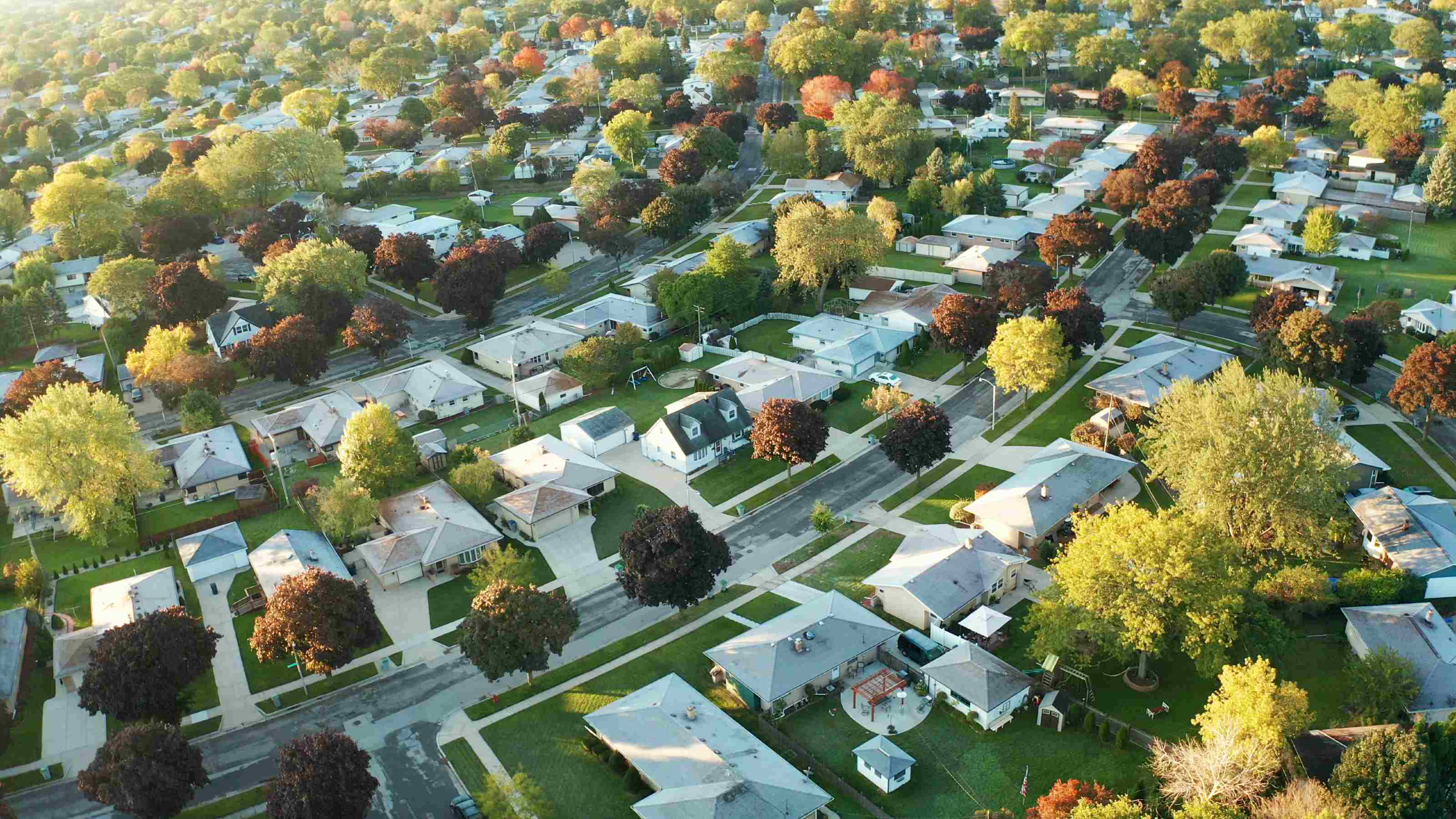
UMH Properties
- Market value: $601.0 million
- Dividend yield: 5.0%
UMH Properties (UMH, $14.41) is a manufactured-housing REIT that owns and operates 124 manufactured-home communities together representing 23,400 developed homesites. Its housing communities are located in New Jersey, New York, Ohio, Pennsylvania, Tennessee, Indiana, Maryland and Michigan.
The company's growth strategy focuses on acquiring under-performing or under-developed communities and making site improvements that fuel growth in rents and occupancies.
COVID-19 has had virtually no impact on the REIT's 2020 operational performance. The company's FFO is actually up 8.7% across the first nine months of the year. UMH delivered a strong third quarter, with rental income up 10%, same-property occupancy up from 83.7% to 86.9%, and FFO per share up 20% year-over-year.
In addition, the REIT has increased availability on its credit line while reducing interest payments, trimmed its net debt to adjusted EBITDA from 6.6x at year's end to 5.8x at Q3's end, and acquired two communities containing about 310 homesites.
UMH has perhaps the stickiest dividend situation of these high-yield REITs, so handle with care. While it has paid dividends since 1990, its streak of payout raises stopped in 2008, when the recession forced a dividend cut. Since then, the payout has held steady, but at a high payout ratio averaging 98% over the past four years, and has exceeded 100% during the pandemic.
However, The REIT has announced plans to call its Series B Perpetual Preferred Stock, which management says should add $0.11 to annualized per share FFO, thus improving payout. "We believe a dividend increase in 2021 is likely given management commentary and significant decline in 2021E AFFO payout (from 96% to 73%)," say B. Riley analysts, expecting an increase from 72 cents per share across four quarterly payouts to 76 cents.
Berenberg analyst Keegan Carl initiated coverage of UMH with a "Buy" rating in October. He thinks the market is underestimating the solid fundamentals of manufactured housing REITs and expects above-average growth.
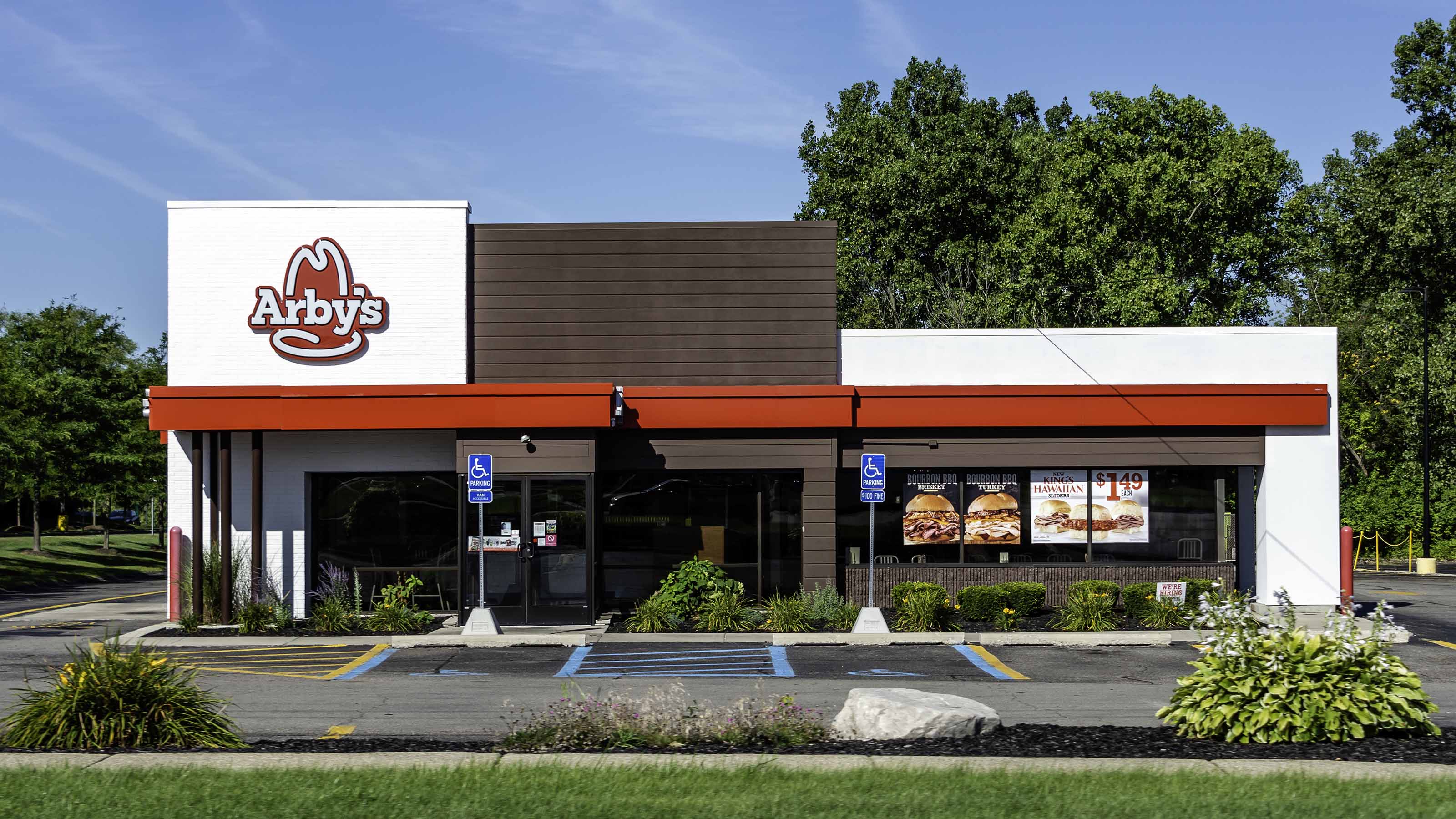
Essential Properties Realty Trust
- Market value: $2.1 billion
- Dividend yield: 4.7%
Essential Properties Realty Trust (EPRT, $19.76) invests in single-tenant, net-lease properties across the US. At present, the REIT owns nearly 1,100 properties leased to 214 tenants spread across 16 different industries. At present, its properties are 99.6% leased and have remaining lease terms averaging a high 14.6 years.
Over 60% of the portfolio consists of e-commerce resistant businesses such as quick service restaurants, child learning facilities, car washes, medical office and convenience stores. Of these, only the child learnings segment (roughly 13% of the portfolio has been moderately impacted by the coronavirus.
Thanks to the essential nature of its portfolio, this small but resilient REIT managed to keep its adjusted FFO flat during the first nine months of 2020, generated 6% FFO per share growth during the first six months of 2020, invested nearly $360 million in 126 new properties that are already 100% leased and ended the third quarter in stellar financial shape with liquidity of about $490 million and a modest 4x ratio of net debt-to-EBITDA.
Essential Properties began paying dividends in 2019, a year after came public, and hiked those payouts twice that year for a total increase of nearly 10%, but has kept dividends level in 2020. Payout is at the low end of the REIT range at 82%.
EPRT is among the most loved high-yield REITs on this list, with several calling it a Buy and reiterating their views of late. Stifel, for instance, called out the company's "strong balance sheet" and one of the lowest net-debt-to-EBITDA ratios in the sector.

Highwood Properties
- Market value: $3.9 billion
- Dividend yield: 5.2%
Highwood Properties (HIW, $37.20) is an office REIT with an unusual twist; it owns and acquires properties in the best business districts of fast-growing "secondary" cities such as Atlanta, Charlotte, Nashville, Orlando, Pittsburgh, Raleigh, Richmond and Tampa. The REIT benefits from a migration of corporate tenants from cities such as New York, Los Angeles and Chicago to secondary markets where rents are lower and commutes are easier.
The REIT rents to high credit-quality tenants such as the federal government, Bank of America (BAC), Bridgestone Americas (BRDCY) and MetLife (MET).
Highwood has generated steady 4% FFO per share gains over the past decade. The REIT began paying dividends in 1994 and has grown annual payments 3% over five years. Payout is exceptionally modest for a REIT, sitting around the mid-50% area.
The strength of its markets and tenants is evidenced by third-quarter rent collections remaining strong at 99.7%. FFO per share for 2020's first nine months was up 12% year-over-year. Other highlights from its most recent report included 5.5% cash rent growth in Q3, and 660,000 square feet of second-gen office leases signed. That included the REIT's renewal of a Tampa lease with the FBI for 138,000 square feet, which was its largest lease expiration remaining in 2020.
Highwood Properties is well-positioned to grow from its $503 million development pipeline that is already 79% pre-leased, $719 million of liquidity for new deals and low 5x ratio of debt-to-adjusted EBITDA.
Morgan Stanley analyst Vikram Malhotra (Overweight, equivalent of Buy) likes the REIT's 95% Sun Belt exposure, mostly pre-leased development pipeline and well-covered dividend. Wells Fargo analyst Brendan Finn reiterated his Overweight rating on the stock in late September, too.
Profit and prosper with the best of Kiplinger's advice on investing, taxes, retirement, personal finance and much more. Delivered daily. Enter your email in the box and click Sign Me Up.

Lisa currently serves as an equity research analyst for Singular Research covering small-cap healthcare, medical device and broadcast media stocks.
-
 Dow Leads in Mixed Session on Amgen Earnings: Stock Market Today
Dow Leads in Mixed Session on Amgen Earnings: Stock Market TodayThe rest of Wall Street struggled as Advanced Micro Devices earnings caused a chip-stock sell-off.
-
 How to Watch the 2026 Winter Olympics Without Overpaying
How to Watch the 2026 Winter Olympics Without OverpayingHere’s how to stream the 2026 Winter Olympics live, including low-cost viewing options, Peacock access and ways to catch your favorite athletes and events from anywhere.
-
 Here’s How to Stream the Super Bowl for Less
Here’s How to Stream the Super Bowl for LessWe'll show you the least expensive ways to stream football's biggest event.
-
 What Fed Rate Cuts Mean For Fixed-Income Investors
What Fed Rate Cuts Mean For Fixed-Income InvestorsThe Fed's rate-cutting campaign has the fixed-income market set for an encore of Q4 2024.
-
 The Most Tax-Friendly States for Investing in 2025 (Hint: There Are Two)
The Most Tax-Friendly States for Investing in 2025 (Hint: There Are Two)State Taxes Living in one of these places could lower your 2025 investment taxes — especially if you invest in real estate.
-
 The Final Countdown for Retirees with Investment Income
The Final Countdown for Retirees with Investment IncomeRetirement Tax Don’t assume Social Security withholding is enough. Some retirement income may require a quarterly estimated tax payment by the September 15 deadline.
-
 The Dollar Index Is Sliding. Is Your Portfolio Prepared?
The Dollar Index Is Sliding. Is Your Portfolio Prepared?The dollar's fall has been troubling because inflation appears to be constrained and the economy has been strong. Here's what it means for investors.
-
 The 24 Cheapest Places To Retire in the US
The 24 Cheapest Places To Retire in the USWhen you're trying to balance a fixed income with an enjoyable retirement, the cost of living is a crucial factor to consider. Is your city the best?
-
 Dividends Are in a Rut
Dividends Are in a RutDividends may be going through a rough patch, but income investors should exercise patience.
-
 Municipal Bonds Stand Firm
Municipal Bonds Stand FirmIf you have the cash to invest, municipal bonds are a worthy alternative to CDs or Treasuries – even as they stare down credit-market Armageddon.
-
 High Yields From High-Rate Lenders
High Yields From High-Rate LendersInvestors seeking out high yields can find them in high-rate lenders, non-bank lenders and a few financial REITs.
